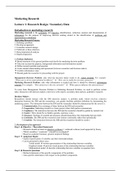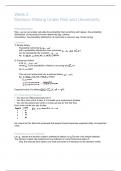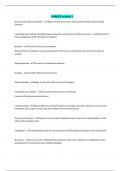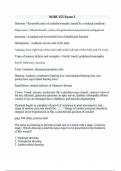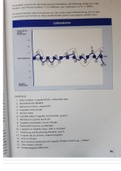Summary
Summary Death and Grief
- Course
- Institution
Death: the permanent and thus irreversible cessation of all of the following vital bodily functions: 1. Total cerebral function 2. Spontaneous function of the respiratory system 3. Spontaneous function of the circulatory system Related concepts Stages of Dying: (Kubler-Ross) Stages of dyi...
[Show more]




